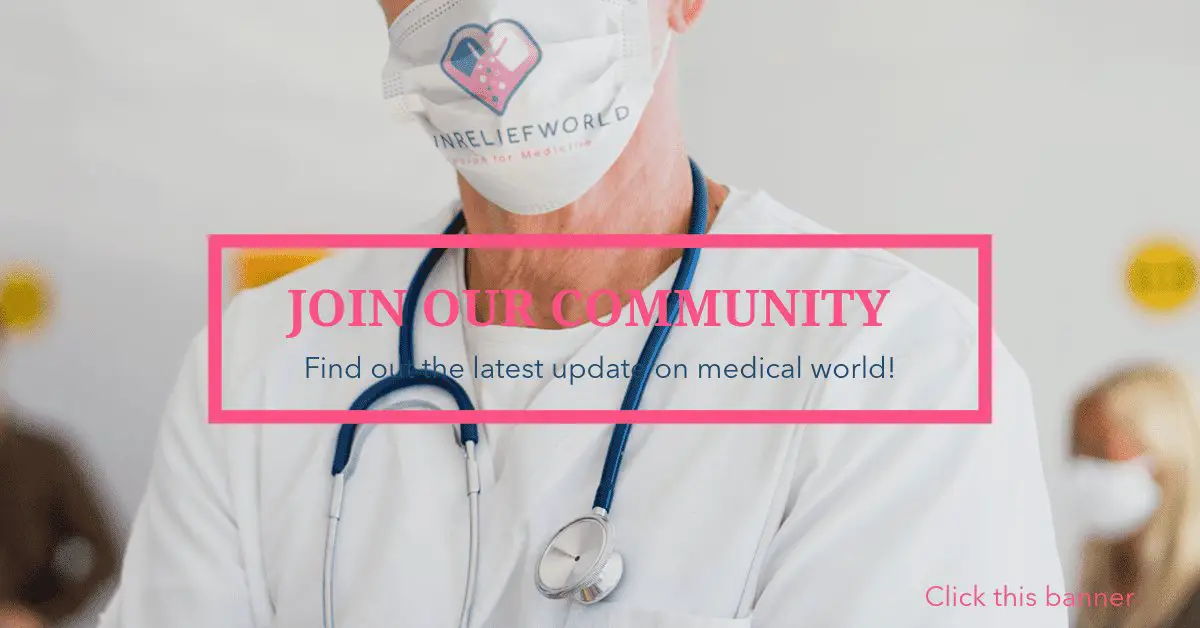The misuse of drug abuse – Are you or someone you know struggling with drug abuse? It’s a challenging and complex issue that affects individuals and communities worldwide.
In this article, we will delve into the factors contributing to drug abuse and explore its impact on both individuals and communities. But don’t worry, we won’t leave you hanging – we’ll also discuss prevention strategies and treatment options to help combat this problem.
Drug abuse is not a simple problem with straightforward solutions. There are various factors that can contribute to its development, such as genetic predisposition, environmental influences, mental health issues, and social pressures. Understanding these underlying factors is crucial in order to address the root causes of drug abuse effectively.
The consequences of drug abuse extend far beyond an individual’s personal struggles. It impacts families, friends, workplaces, schools, and entire communities. From increased crime rates to strained healthcare systems and disrupted social dynamics – the effects of drug abuse ripple outwards like a stone thrown into a pond.
But there is hope! Through education, awareness campaigns, early intervention programs, and accessible treatment options, we can make strides towards preventing drug abuse and helping those who are already caught in its grasp. By approaching this issue with empathy and knowledge while providing viable solutions, we can create a society where individuals no longer have to suffer from the misuse of drugs.
In the following sections of this article, we will explore comprehensive prevention strategies that aim to address both individual risk factors as well as societal influences. We will also dive into different treatment approaches that have proven effective in helping people overcome their addiction.
So stick around – together let’s unravel the mysteries surrounding drug abuse and work towards building healthier communities for all.
The Factors Contributing to Drug Abuse

The factors that contribute to drug abuse are like tangled vines suffocating your potential, wrapping around your mind and body, leaving you trapped in a cycle of destruction.
Drug abuse can stem from various causes, such as genetic predisposition, environmental influences, and mental health issues. These factors intertwine and create a perfect storm for addiction.
The consequences of drug abuse are devastating; they not only affect the individual but also ripple through communities, causing pain and suffering.
Genetic factors play a significant role in determining an individual’s susceptibility to drug abuse. Research has shown that certain genes can increase the likelihood of developing an addiction. However, genetics alone cannot account for the entire picture.
Environmental influences also play a crucial role in shaping one’s vulnerability to drugs. Growing up in an environment where substance abuse is prevalent or experiencing trauma can greatly increase the risk of falling into the trap of addiction.
Education plays a vital role in preventing drug abuse and breaking free from its grip. By educating individuals about the causes and consequences of drug abuse, we empower them with knowledge to make informed decisions about their health and well-being. Education should start early, teaching children about the dangers of drugs and equipping them with coping mechanisms to navigate life’s challenges without turning to substances. When we invest in education that focuses on prevention rather than solely treatment, we give individuals a fighting chance against drug abuse.
Understanding the causes and consequences of drug abuse allows us to approach this issue with empathy and compassion for those affected by it. By prioritizing education as a preventive measure, we can break free from this vicious cycle that ensnares countless lives every day.
As we delve deeper into how drug abuse impacts individuals and communities alike, let us remember that change is possible when we work together towards solutions that prioritize support over stigma.
Now let’s explore the impact of drug abuse on individuals’ lives as well as its effects on communities at large:
The Impact of Drug Abuse on Individuals and Communities

Within communities and individuals, drug abuse wreaks havoc, causing devastating consequences that ripple throughout society. The long-term effects of drug abuse on mental health are particularly alarming. Substance abuse can lead to severe psychological disorders such as depression, anxiety, and psychosis. These conditions not only affect the individual’s well-being but also strain relationships with family and friends. It is crucial to address these mental health issues alongside addiction treatment to achieve lasting recovery. Knowing addiction prevention methods is important.
The economic consequences of drug abuse in communities cannot be ignored either. Drug addiction often leads to unemployment, reduced productivity, and increased healthcare costs. Individuals struggling with substance abuse may find it challenging to maintain stable employment or hold onto their finances due to the damaging effects of addiction on cognitive functioning and decision-making skills. Moreover, communities bear the burden of supporting those affected by drug abuse through increased funding for social services and law enforcement.
To further illustrate the impact of drug abuse on individuals and communities, consider the following table:
| Long-term Effects | Mental Health | Economic Consequences |
|---|---|---|
| Depression | Unemployment | Reduced Productivity |
| Anxiety | Relationship Strain | Increased Healthcare Costs |
| Psychosis | Financial Instability | Higher Funding for Social Services |
Addressing these challenges requires a multifaceted approach that focuses not only on prevention but also on effective treatment strategies. By implementing early intervention programs in schools and educating young people about the dangers of substance abuse, we can reduce the likelihood of future addiction cases within our communities. Additionally, investing in comprehensive treatment options that combine medical detoxification with therapy and support groups can empower individuals to overcome their addictions while addressing underlying mental health issues.
Transitioning into the subsequent section about prevention and treatment strategies for drug abuse: Understanding the devastating impact of drug abuse on individuals’ mental health and its economic consequences within communities highlights the urgent need for prevention and treatment strategies.
Prevention and Treatment Strategies for Drug Abuse

To effectively address and combat drug addiction, it’s essential to implement preventative measures and establish treatment strategies that prioritize mental well-being and community support.
Prevention strategies play a crucial role in reducing the risks of drug abuse. Education programs should be implemented at schools, providing accurate information about the dangers of drugs and promoting healthy coping mechanisms. Additionally, community outreach initiatives can help raise awareness about the consequences of drug abuse and provide resources for those who may be struggling.
When it comes to treatment options, a comprehensive approach is necessary to address both the physical and psychological aspects of addiction. Rehabilitation centers should offer a range of therapies tailored to meet individual needs. These may include cognitive-behavioral therapy, group counseling sessions, and medication-assisted treatments where appropriate. It’s important for treatment programs to focus not only on detoxification but also on equipping individuals with the skills needed to maintain long-term sobriety.
Community support plays a vital role in preventing relapse and promoting recovery. Peer support groups like Narcotics Anonymous provide individuals with a safe space to share their experiences, seek guidance from others who have gone through similar struggles, and receive ongoing encouragement in their journey towards sobriety. Building strong community networks ensures that individuals battling addiction don’t feel isolated or judged but rather supported along every step of their recovery process.
Prevention strategies are instrumental in curbing drug abuse rates by educating communities about the risks involved and promoting healthy alternatives. Treatment options should encompass various therapies that address both physical dependency and underlying psychological factors contributing to addiction. Finally, fostering community support networks creates an environment where individuals feel empowered throughout their recovery process while establishing connections that aid in long-term sobriety maintenance.
Frequently Asked Questions
How does drug abuse affect the mental health of individuals?
Drug abuse can have a significant impact on your mental health. It can impair your cognitive function, making it difficult to think clearly and concentrate. This can negatively affect your productivity and overall well-being. However, there are solutions available to help you overcome these challenges.
What are the legal consequences of drug abuse?
So you’re curious about the legal consequences of drug abuse? Well, my friend, let me tell you, they can be quite a buzzkill. From hefty fines to jail time, the law doesn’t mess around. But don’t worry, there’s hope! Drug addiction treatment is available to help you turn your life around and avoid those pesky legal penalties. Let’s focus on finding solutions instead of getting caught up in the messiness of drug abuse.
Are there any specific demographics that are more prone to drug abuse?
Some individuals may be more genetically predisposed to drug abuse, while others may be influenced by socioeconomic factors. It’s important to understand these underlying factors in order to develop effective prevention and intervention strategies for different demographics.
Can drug abuse lead to long-term physical health problems?
Yes, drug abuse can lead to long-term physical health problems. The physical consequences of drug abuse can include organ damage, heart disease, respiratory issues, and even death. It’s important to seek help and support for a healthier future.
How does drug abuse impact relationships and social interactions?
Drug abuse can strain family dynamics, causing relationship breakdowns. Societal stigma further isolates individuals, making it harder to seek help. However, by promoting understanding and support, we can rebuild relationships and create a supportive environment for recovery.
The Misuse of Drug Abuse
In conclusion, drug abuse is a complex issue that affects individuals and communities in profound ways. It’s like a dark cloud hanging over people’s lives, casting a shadow on their potential and well-being.
But fear not, for there are solutions to this problem. By implementing prevention strategies such as education programs and community support networks, we can help break the cycle of drug abuse. Just like planting seeds of knowledge and compassion, we can nurture a garden of hope and resilience.
Together, we can create an environment where individuals feel empowered to make healthy choices and seek treatment when needed. Furthermore, providing accessible and effective treatment options is crucial in helping those struggling with drug abuse find their way out of the darkness.
Treatment centers become beacons of light, offering guidance and support to those who have lost their way. With the right resources and compassionate professionals by their side, individuals can embark on the journey towards recovery.
Remember, drug abuse may seem like an insurmountable mountain at times, but with determination and collective action, we can overcome it. Let us join hands as a community united against substance misuse – shining a light on hope for a brighter future free from the shackles of addiction.

Stephanie Ansel is a well-known writer and journalist known for her unique and captivating writing style. She has written many articles and books on important topics such as the lifestyle, environment, hobbies, and technology and has been published in some of the biggest newspapers and magazines. Stephanie is also a friendly and approachable person who loves to talk to people and learn about their stories. Her writing is easy to read and understand, filled with lots of details and information, and is perfect for both kids and adults who want to learn about important topics in an interesting way.



